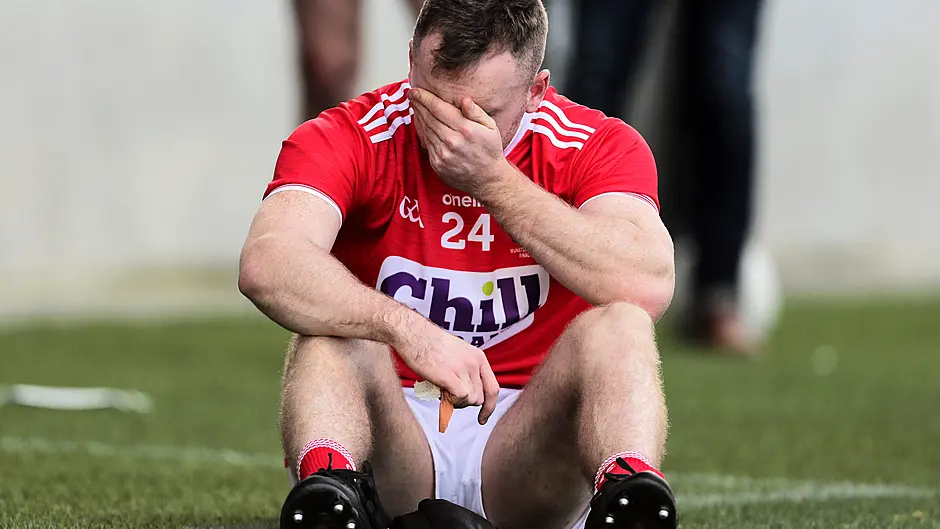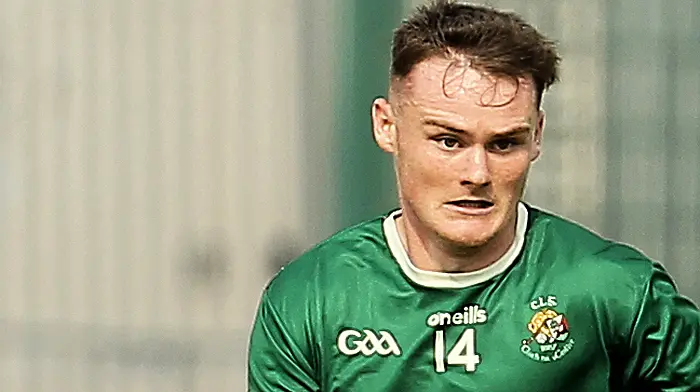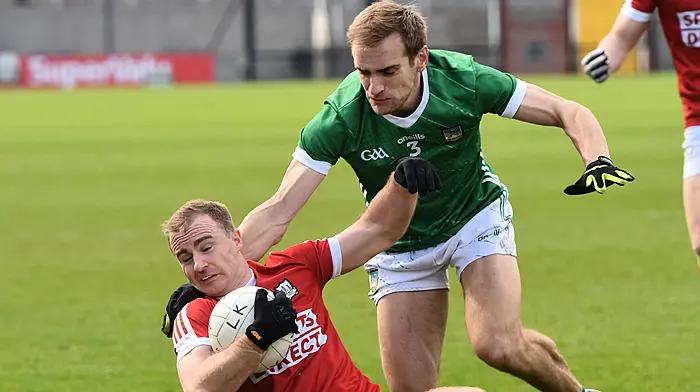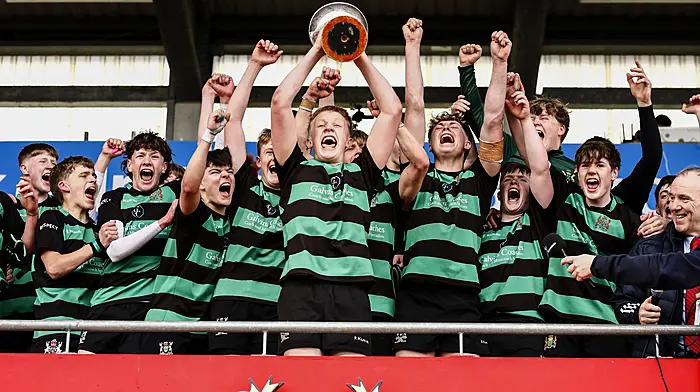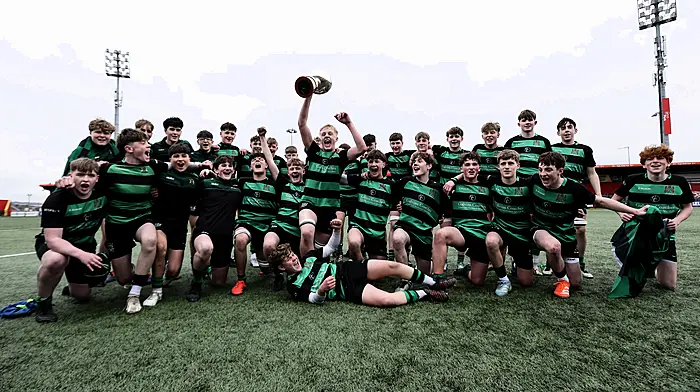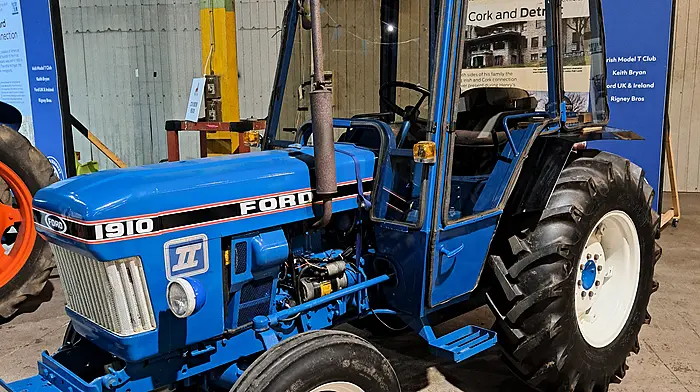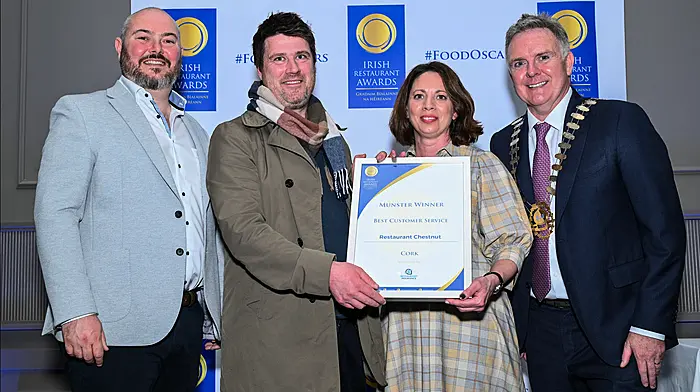BY JOHN HAYES
CORK football, you are such a cruel mistress. Make no bones about it, this Munster final loss to Tipperary was as crushing a defeat as Cork have endured since the 2009 All-Ireland final.
If we described the semi-final victory over Kerry as a much-needed shot in the arm that had us standing tall and proud, this defeat was a punch to the gut that has left us crumpled in a heap and unable to beat the count.
We knew this was a dangerous game for Cork before the throw-in, yet we hoped that the improvements shown over the last two seasons, home advantage and the momentum from beating Kerry would inspire Cork to further progression in this wonderful, one-off championship. Tipperary had other ideas – and they fully deserved this win.
Cork may have edged the possession statistics, but Tipp controlled this game from start to finish. From the opening minutes when their incisive attacking yielded some early points for Conor Sweeney to the late insurance scores from Evan Comerford and Philip Austin, Tipp had all the answers.
Luke Connolly and his free-taking led Cork’s resistance to Tipp’s fast start, bringing the teams level at the first water break. Tipperary won this game in the second quarter, cutting Cork open at their ease. Sweeney and Michael Quinlivan were the destroyers in chief, but were ably supported by Keith Fahey, Stephen O’Brien, Liam Casey and Colin O’Riordan, to name but a few.
Tipperary followed Cork’s lead in making their pleas Down Under to allow O’Riordan to play and were handsomely rewarded; his performance after several years away from Gaelic football was remarkable. In a strange twist of fate, his AFL counterpart on the Cork side, Mark Keane, performed much better during this cameo than he did against Kerry, but there were no repeat of his last-minute heroics.
In the last attack of the game, Keane found himself on the edge of the square with just one defender for company, yet Cork decided to persist with the running game and coughed up a turnover.
There, in microcosm, showed the crux of the attacking problem for Cork – our long time over-reliance on running and hand passing through teams.
Even with the Cork team I played on between 2005 and 2010, when we were relatively successful and consistently a top-four outfit, we sometimes relied too much on the running game. The lack of variety in our attacking strategy is not a new phenomenon, but Cork were painfully one-dimensional last Sunday. Where it made sense to preach patience in dreadful conditions against Kerry, the onus was on Cork, as favourites this time, to show that we have more strings to our attacking bow.
Unfortunately, Cork continuously ran headfirst into the Tipp defensive wall around the Tipp 45, either coughing up possession or having to turn and play backwards. Just prior to half time, Mattie Taylor played an accurate 40-yard kick pass over this wall into Brian Hurley who set up John O’Rourke for a point. It was the only time I remember this strategy being successfully utilised by Cork, and it was not something they were able to replicate at any stage in the second half either. Hurley and half-time sub Cathail O’Mahony were virtual passengers in the second half.
And while Cork’s attacking travails were nothing new from the Kerry game, our defensive struggles were far more pronounced. Where Kerry failed, Tipperary succeeded. Tipp’s senior figures bullied the younger, physically lighter Cork defenders. Sean Powter was clearly a loss but concerns over Cork defenders’ abilities to withstand top-class forwards manifested against Sweeney and Quinlivan, as opposed to David Clifford and Tony Brosnan. Conditions were considerably better for forwards last Sunday, but Kerry and Peter Keane will have been watching and kicking themselves.
At midfield, Cork gained relative parity aerially and Ian Maguire was his usual tireless self, but Tipp – through Casey, O’Brien and O’Riordan – won the ground battle. Maguire did not get enough support from his team-mates in this area, the captain being possibly the only player who gave anything close to a 70-minute performance for Cork. Connolly before his withdrawal, and John O’Rourke were others to make positive contributions.
A question that has been asked in the aftermath, and one that always is when a favourite has been overturned, is whether complacency got the better of Cork after beating Kerry? My gut instinct is that this is too easy an answer, and that in fact Tipperary produced their best performance in a number of years to gain the victory as opposed to Cork not being tuned in.
In these Covid times, Cork players would have little distraction by way of public interaction over the last two weeks. There was more than enough time for players and management to refocus, and I’m sure there was nothing but Tipperary in their heads since the Tuesday after the Kerry win. The performance and game-plan on the day were simply not good enough. It seems another Cork football period of introspection awaits this winter.
Much has been made about the centenary of Bloody Sunday, and the eerie coincidence around the identities of the provincial winners – it is remarkable, it has to be said – with suggestions that perhaps fate had decreed the outcome of this contest in advance. I’m not one who gives too much to piseoigs and superstition, believing that we are, at least in a sporting context, responsible for our own destiny. However, it is a peculiar set of circumstances that aligned to create the opportunity for Tipperary to make history.
It’s well documented now that had the pandemic not struck, and the championship gone ahead in the summer, Tipp would not have had Casey, Quinlivan, O’Riordan and a few others available. Seeing Kerry ousted and after their own struggles in getting past Limerick, I expect the senior figures on the Tipp panel, who have toiled for the last decade, would have gathered the troops and outlined the sense of opportunity that was in front of them.
Tipp have believed they are at least an equal to Cork since my last start for my county in 2014, and that events had transpired to allow them one last, great opportunity to secure Tipperary’s first Munster success since 1935.
Those senior players, and everyone else with them, grabbed the opportunity with both hands from minute one, and scarcely loosened their grip throughout the contest.
So while Tipp remain in the hunt and have meaningful silverware in their pocket, here in Cork a Division 3 title does little to soothe our wounds.

